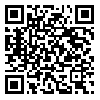Download citation:
BibTeX | RIS | EndNote | Medlars | ProCite | Reference Manager | RefWorks
Send citation to:



BibTeX | RIS | EndNote | Medlars | ProCite | Reference Manager | RefWorks
Send citation to:
Shahrabadi E, Zeinaddiny meymand Z, Kamyabi M, Hajipour Abaie N. Development and Application of the Components of the Lifelong Learning Concept in General Medical Curricula:
A Delphi Study. Iranian Journal of Medical Education 2025; 25 :41-52
URL: http://ijme.mui.ac.ir/article-1-5860-en.html
URL: http://ijme.mui.ac.ir/article-1-5860-en.html
Department of Educational Sciences and Psychology, Ke.C., Islamic Azad University, Kerman, Iran. , zeinaddiny@gmail.com
Abstract: (1015 Views)
Introduction: Lifelong learning is a dynamic and continuous process that enables physicians to adapt to rapid advancements in medical sciences and improve the quality of clinical care. Despite existing challenges in defining and interpreting the concept of lifelong learning, this study aimed to identify the components for the development and application of the concept of lifelong learning in the curricula of the general medicine course.
Methods: The present study was conducted using a mixed-methods approach (qualitative-quantitative). The participants included 15 experts in medical education, curriculum planning, and faculty members from the Universities of Medical Sciences in Rafsanjan, Kerman, Isfahan and Isfahan payamenoor in the year 2025. They were selected through purposive sampling. Data were collected using closed- and open-ended questionnaires following the Delphi method and analyzed with descriptive statistics including frequency, mean, interquartile range, and agreement ratio, reaching consensus based on a 75% criterion.
Results: The findings showed that 17 components reached consensus with agreement of 75% and above. These components included self-directed learning, self-regulated learning, evidence-based medicine, Learning how to learn, attention to and utilization of learning opportunities, curiosity and having an active mind, continuous learning process, engagement in scientific-practical and evolutionary efforts, knowledge translation, readiness to accept and value new ideas, intrinsic dynamism of learning and knowing, promotion of professional skills and accountability, interdisciplinary collaboration, continuous personal and occupational satisfaction, personal growth, having a mindset for success, and self-efficacy.
Conclusion: The identified components for the development and application of the concept of lifelong learning encompass a broad scope. These concepts can serve as a foundation for improving curriculum planning and for training physicians with competencies aligned with the needs of society.
Methods: The present study was conducted using a mixed-methods approach (qualitative-quantitative). The participants included 15 experts in medical education, curriculum planning, and faculty members from the Universities of Medical Sciences in Rafsanjan, Kerman, Isfahan and Isfahan payamenoor in the year 2025. They were selected through purposive sampling. Data were collected using closed- and open-ended questionnaires following the Delphi method and analyzed with descriptive statistics including frequency, mean, interquartile range, and agreement ratio, reaching consensus based on a 75% criterion.
Results: The findings showed that 17 components reached consensus with agreement of 75% and above. These components included self-directed learning, self-regulated learning, evidence-based medicine, Learning how to learn, attention to and utilization of learning opportunities, curiosity and having an active mind, continuous learning process, engagement in scientific-practical and evolutionary efforts, knowledge translation, readiness to accept and value new ideas, intrinsic dynamism of learning and knowing, promotion of professional skills and accountability, interdisciplinary collaboration, continuous personal and occupational satisfaction, personal growth, having a mindset for success, and self-efficacy.
Conclusion: The identified components for the development and application of the concept of lifelong learning encompass a broad scope. These concepts can serve as a foundation for improving curriculum planning and for training physicians with competencies aligned with the needs of society.
Keywords: Conceptualization, Concept, Lifelong Learning, General Medicine/practitioner, Delphi Technique
Type of Study: Original research article |
Subject:
Continuing Education
Received: 2025/03/14 | Accepted: 2025/06/21 | Published: 2025/05/31 | ePublished: 2025/05/31
Received: 2025/03/14 | Accepted: 2025/06/21 | Published: 2025/05/31 | ePublished: 2025/05/31
Send email to the article author
| Rights and permissions | |
 |
This work is licensed under a Creative Commons Attribution-NonCommercial 4.0 International License. |





